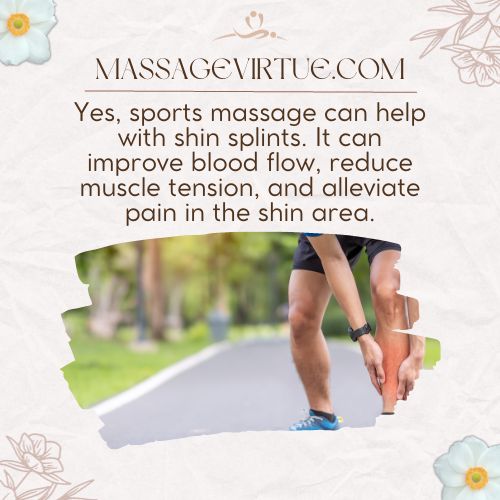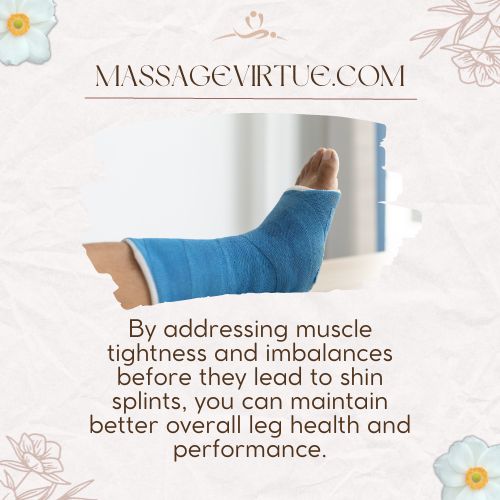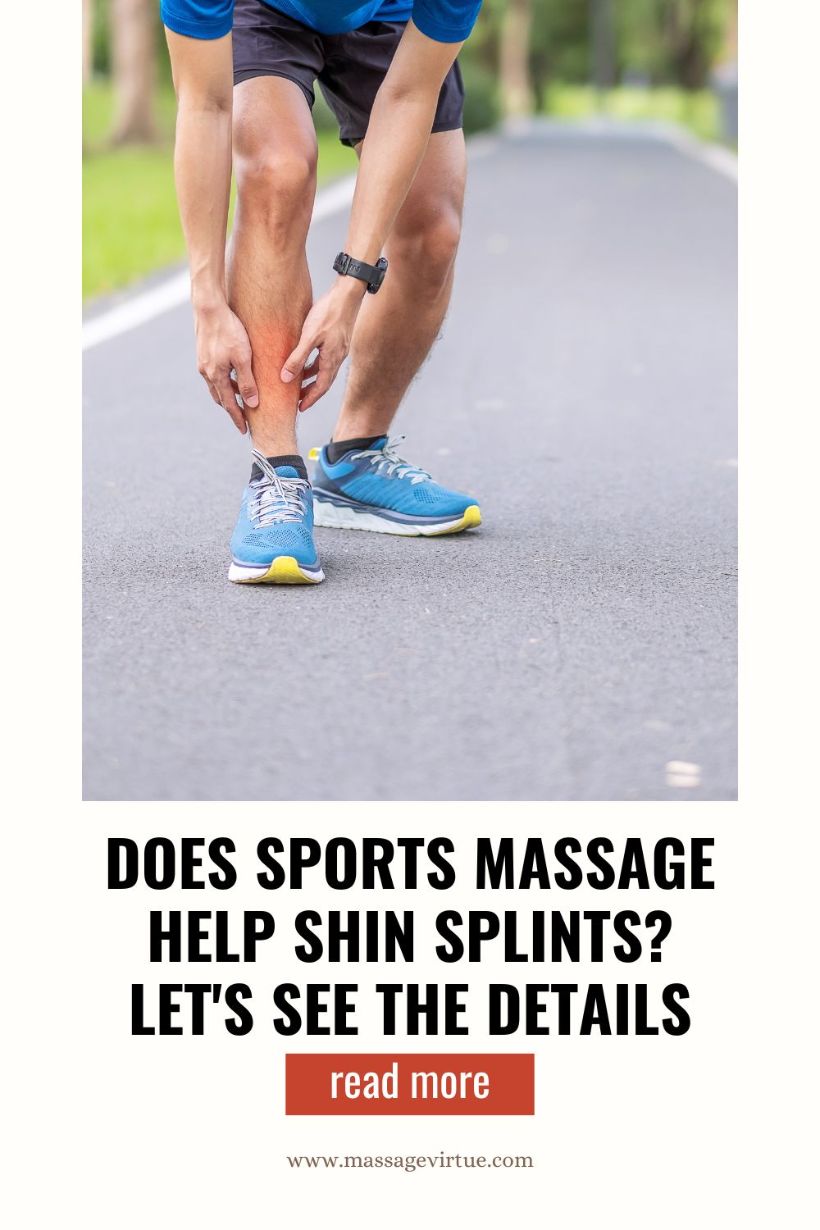If you’re an active individual who has experienced the discomfort of shin splints, you know how much they can hinder your performance and enjoyment of sports and exercise.
Shin splints are a common issue among athletes and fitness enthusiasts, and one potential solution that often comes up is sports massage.
In this article, we’ll explore whether sports massage can indeed help alleviate shin splints and what the potential benefits are.
Does Sports Massage Help Shin Splints?
Yes, sports massage can help with shin splints. It can improve blood flow, reduce muscle tension, and alleviate pain in the shin area.
This massage will focus on the affected muscles to release tension and promote healing.
However, it’s important to consult a healthcare professional for a proper diagnosis and to ensure that a sports massage is appropriate for your specific case.

Additionally, rest and appropriate stretching and strengthening exercises are often recommended as part of the treatment for shin splints.
Sports Massage Benefits For Shin Splints
Sports massage, when applied correctly, offers several advantages for individuals dealing with shin splints. Let’s explore these benefits in detail.
1. Improved Circulation
One of the primary benefits of sports massage in treating shin splints is improved circulation.
Shin splints often involve inflammation, and massage can help increase blood flow to the affected area.
Enhanced circulation promotes the delivery of essential nutrients and oxygen to the muscles and facilitates the removal of metabolic waste products. This, in turn, aids in the healing process.
2. Reduction of Muscle Tension
Sports massage is known for its ability to release muscle tension. When it comes to shin splints, tight muscles in the lower leg can exacerbate the condition.
A skilled sports massage therapist can target these specific muscle groups, helping to relax and lengthen them.
This can alleviate some of the discomfort associated with shin splints.
3. Pain Relief
Pain relief is a significant goal when it comes to treating shin splints. Sports massage can help reduce pain by releasing endorphins, the body’s natural painkillers.
Additionally, it can assist in breaking down adhesions and knots in the affected muscles, providing relief from localized pain.
4. Faster Recovery
For athletes and fitness enthusiasts, a quicker recovery from shin splints is of utmost importance.
Sports massage accelerates the healing process by promoting blood circulation, reducing muscle tension, and helping the body repair damaged tissues more efficiently.
This means you can return to your activities faster with a reduced risk of a relapse.
5. Prevention of Future Shin Splints
Incorporating sports massage into your routine may also help prevent the recurrence of shin splints.

By addressing muscle tightness and imbalances before they lead to shin splints, you can maintain better overall leg health and performance.
How to Maximize the Benefits of Sports Massage for Shin Splints?
To make the most of sports massage for shin splints, here are some key considerations:
1. Consult a Qualified Sports Massage Therapist
It’s crucial to seek the services of a qualified and experienced sports massage therapist who understands the specific needs of individuals with shin splints.
They can tailor the treatment to your condition.
2. Combine with Other Treatments
Sports massage can be highly effective when used in conjunction with other therapies such as rest, ice, and stretching exercises.
A well-rounded approach to recovery is often the most successful.
3. Communicate Your Symptoms
When receiving a sports massage, be sure to communicate your symptoms, pain levels, and any changes you’ve experienced.
This will help the therapist customize the treatment to your needs.
4. Follow a Maintenance Routine
Even after the shin splints have healed, incorporating regular sports massage into your training regimen can help prevent future issues and maintain optimal muscle health.
5. Listen to Your Body
Always pay attention to your body and how it responds to sports massage and other treatments. If you experience any adverse effects, consult a healthcare professional.
Conclusion
To find relief from the discomfort of shin splints, sports massage can be a valuable tool.
It offers numerous benefits, including improved circulation, reduced muscle tension, pain relief, faster recovery, and prevention of future shin splints.
However, it’s essential to remember that sports massage is most effective when combined with other appropriate treatments and under the guidance of a qualified therapist.
FAQs
Is It Good to Massage Shin Splints?
Yes, massaging shin splints can be beneficial.
Sports massage, when done by a professional, may help improve blood flow, reduce muscle tension, and enhance flexibility in the muscles around your shins.
This can potentially ease the discomfort of shin splints.
What Do Pro Athletes Do for Shin Splints?
Professional athletes often take several steps to manage shin splints.
They may use sports massage, along with other treatments like ice, rest, and stretching. Some athletes also work with physical therapists to design specific exercises for shin splint recovery.
Should I Go to Physical Therapy for Shin Splints?
Yes, considering physical therapy for shin splints is a good idea. Physical therapists can provide targeted exercises and techniques to help you recover faster and prevent future shin splints.
They’ll tailor a treatment plan to your needs and guide you through the process of healing.


